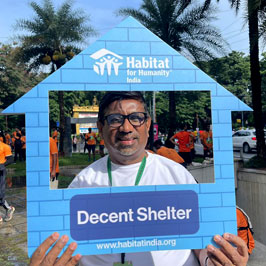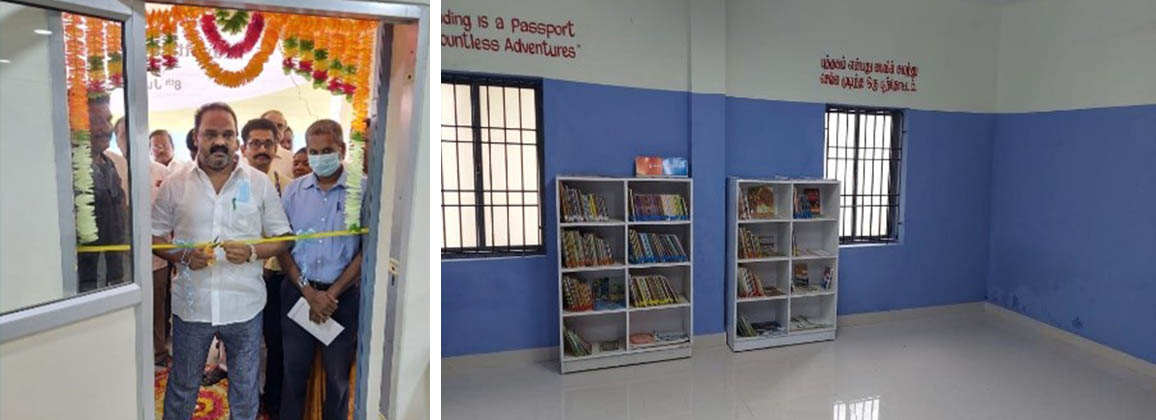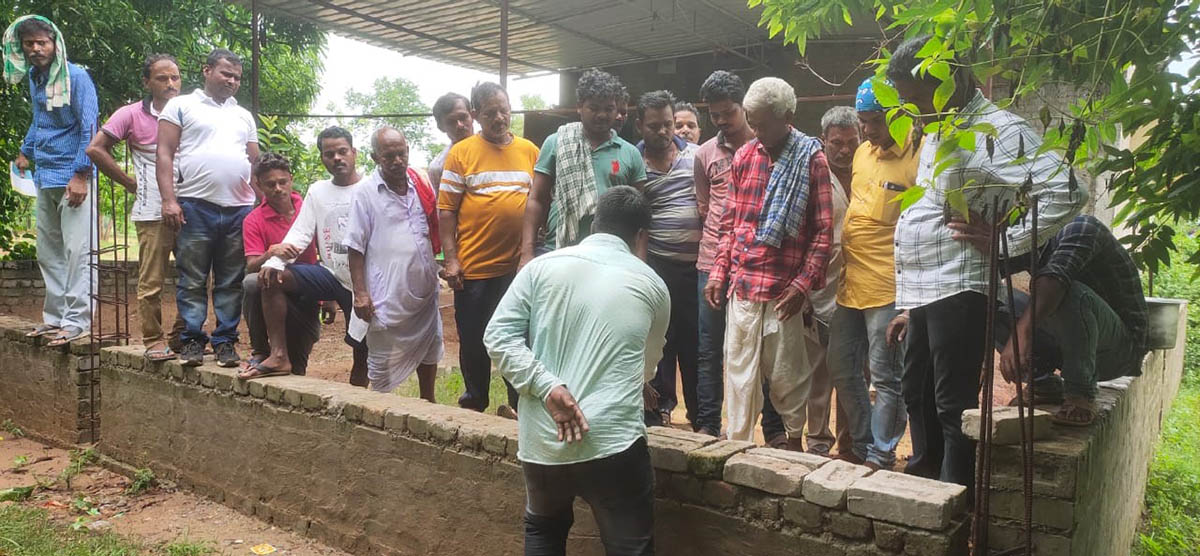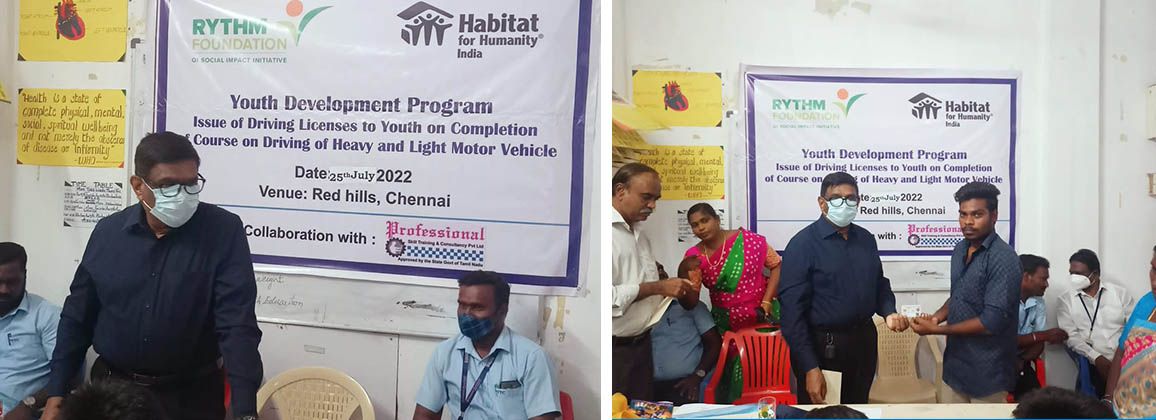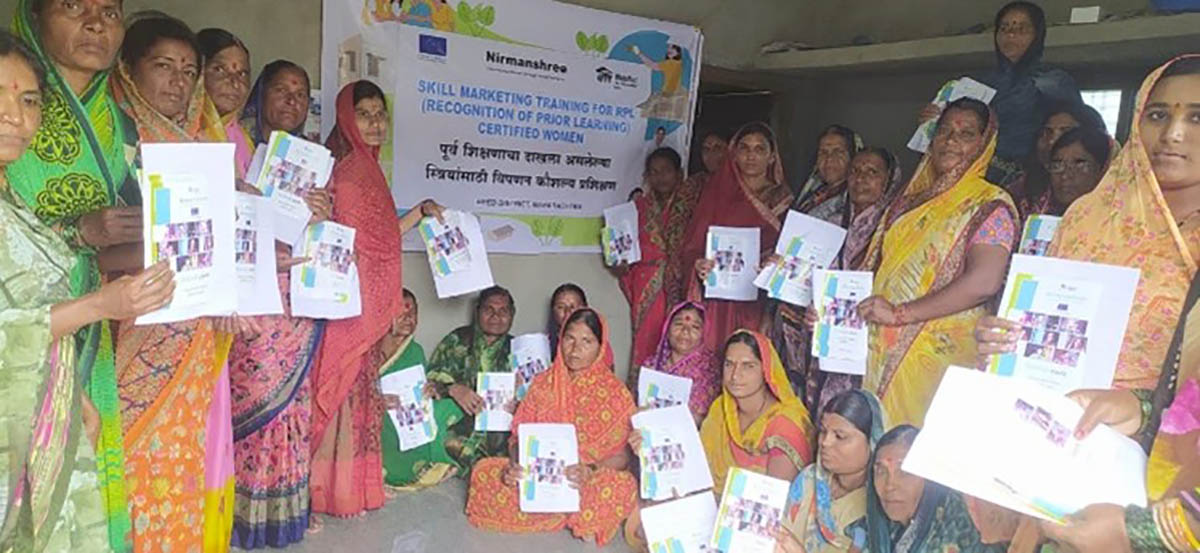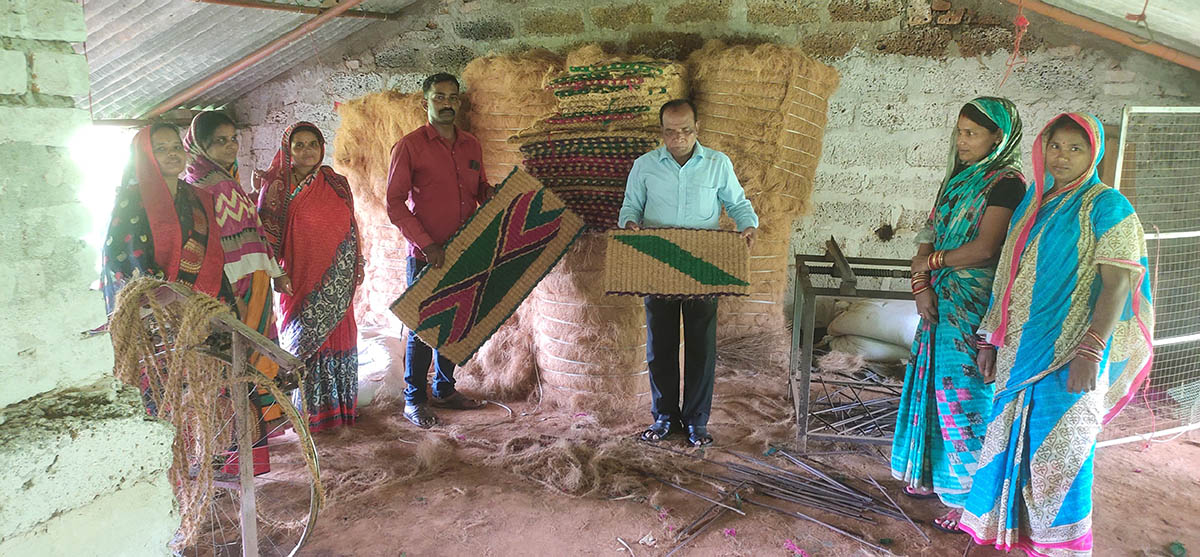
|
|
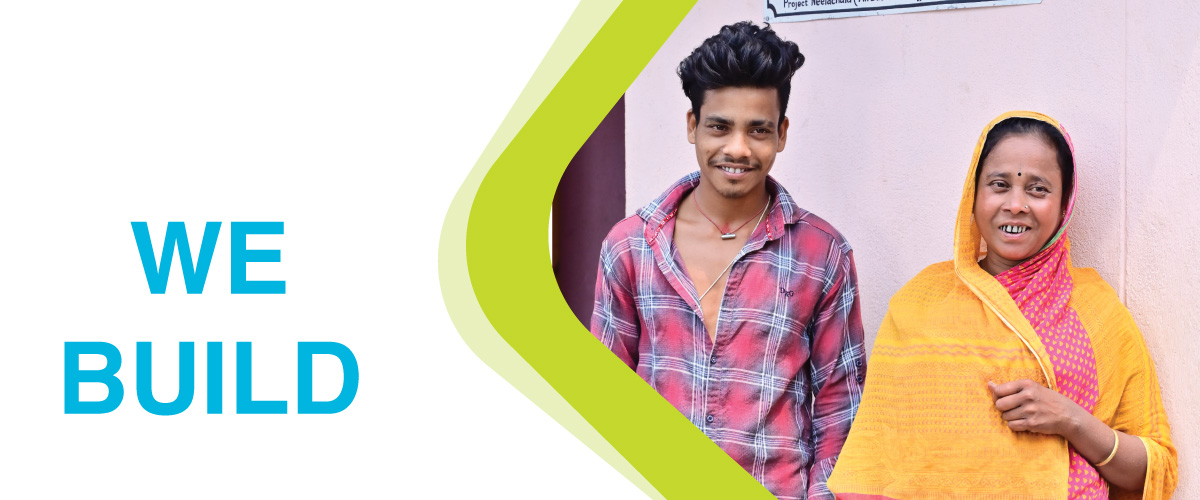
|
|
|
 |
|
|
FROM THE MANAGING DIRECTOR’S DESKCreating Social Capital around Housing Ecosystem Dear Friends, Greetings from Habitat for Humanity India! I would like to share with you 3 unique stories from our communities in Maharashtra, Odisha, and Tamil Nadu. What Swati from Nashik, Maharashtra does is something quite unseen among womenfolk in the country - she drives a tractor. She took to farming after losing her husband to the agrarian crisis that engulfed a larger part of the farming communities in Maharashtra. Swati is among the 35 farmers’ widows who organized themselves as a support group to rebuild their lives through the mandav (shed) method of cultivation, an agriculture tool bank, and other livelihood activities. In Odisha, Deepanjali nurtures both her family and her entrepreneurial spirit. Through project Nirmanshree – a project funded by the European Union - she received training and support to apply for the Prime Minister Employment Generation Program to expand her business and create new jobs for her community. Through this project, we are collaborating with women federations and self-help groups in Odisha and Maharashtra to facilitate the entry of well-trained women workforce in the male-dominated construction sector. In Tamil Nadu, two youth clubs in Naravarikuppam and Sadayankuppam are making a tangible impact in the community. Dr. Abdul Kalam Youth Club, Naravarikuppam recently repaired a house and bought books for 4 students in the community from funds they pooled together. Sadayankuppam Youth Club played an active role in relief distribution in the Tamil Nadu Floods 2021. Both youth groups are mobilizing women and youths for livelihood and life skills training in their respective communities. Recently, 20 youth underwent training to acquire a commercial driving licence. Habitat India has been engaged with the two communities since the Tamil Nadu Floods building 15 houses, repairing 14 houses, and building 149 sanitation units. Despite immense challenges, these women and youth have powered through to achieve strength, stability, and self-reliance in partnership with Habitat. We have been able to create a positive and measurable impact on the lives of people in these communities to create social capital around the crucial housing ecosystem because of our conscious effort to share ownership and collaborate with all stakeholders. As we embark on the new month, let us remain tireless in our effort to build together with the community and the families in need of decent housing in the country. Together, we build!
|
|
|

|
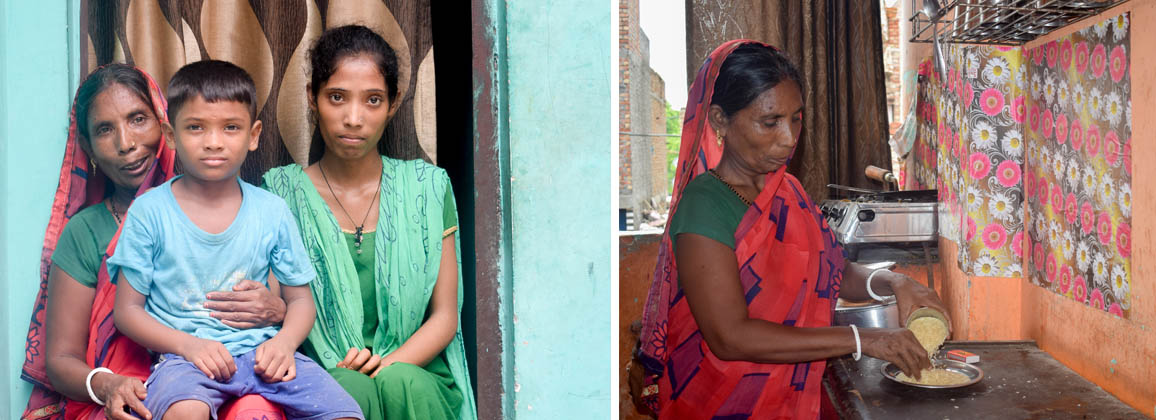
|
|
Meena Devi, Rohini Sector 27, Delhi Meena Devi married Lakhan Lal when she was only 15 years old. A few years later, they had their first son. After that they came to Delhi in the early 1990’s. With nowhere else to live, they built a shack in the vicinity of Kirti Nagar which eventually became known as Reshma Camp. Housing conditions were poor, with people unable to access a decent sanitation and clean drinking water. The family suffered many health complications due to unhygienic living condition and lack of proper shelter. Meena’s trouble worsened when her family was evicted from the slums of Kirti Nagar. But unbeknown to her, this disruption became a blessing in disguise, as the slum resettlement that the Government of Delhi effected meant that she was allotted a small plot of land in Rohini – 27 region. Even though she had the land to her name now, this was not the end of her struggle. She rebuilt her life the only way she knew, struggle to eke out a living as a worker in the factory nearby. She put together mounds of bricks to build a temporary house with roof made of cement tiles from the little savings she had. But her roof would leak during the monsoon. Habitat India partnered with 70 families from the Delhi slum rehabilitation colonies of Madanpur Khadar, Bawana, Rohini - 27, Najafgarh, Begumpur, Savda Ghevra to build safe and decent homes. Meena Devi was among one of the families who built a new home with support from Habitat. “After having this home, I could divert the money usually spent on fixing the house to my children’s education and the household. Having a place of my own has given me so much relief especially during this pandemic,” says Meena Devi. More than 3 years after building the house, Meena feels grateful for a house she shares with her husband, two daughters and two grandchildren. “I would like to thank each person who has contributed to making my dream of having my own home come true. May God bless them with everything that they wish for,” says Meena Devi. |
|
|

|
|
|
Assam Flood Response Appeal |
||||||||||||||||
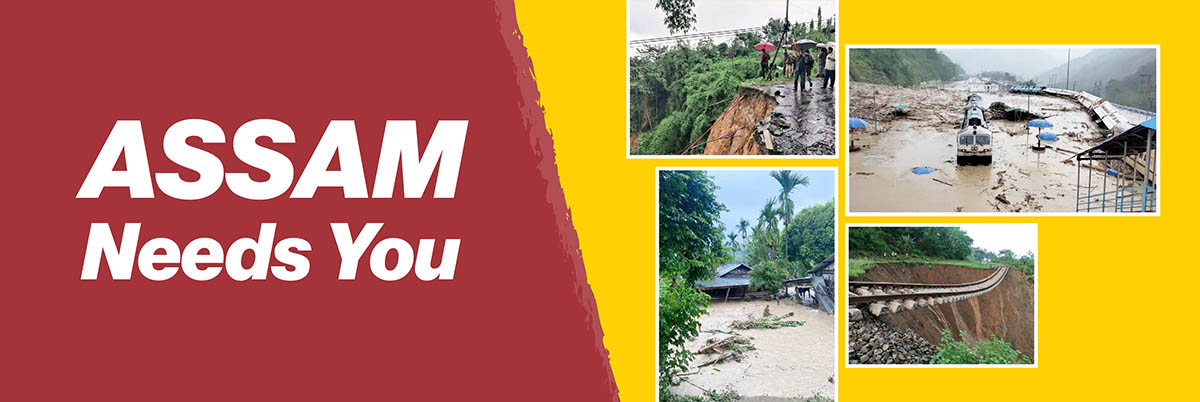 |
||||||||||||||||
Even as the flood water recedes in Assam, More than 6 lakhs people from 506 villages in 11 districts remain displaced. People of Assam have lost their loved ones, their homes, their livelihoods and are in distress. Habitat India is responding to this emergency by providing Humanitarian Aid Kits and Emergency Shelter Kits as a part of our immediate response. Habitat for Humanity places the families affected by natural disasters on a path to durable and sustainable shelter solutions in a phase wise manner through its Pathways to Permanence disaster response strategy. To donate, visit https://habitatindia.org/campaigns/assam-flood-response-appeal/ To support us through CSR, please get in touch with: |
||||||||||||||||
Handing Over Two Homes in Odisha |
||||||||||||||||
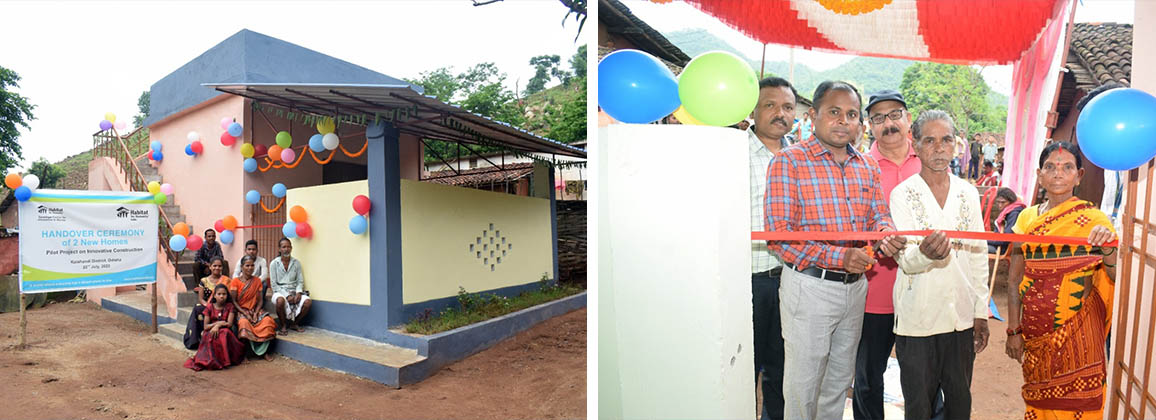 |
||||||||||||||||
On 20th July 2022, two homes were handed over to the homeowners in Lanjigarh, Kalahandi district, Odisha. Supported by Habitat International’s Terwilliger Centre for Innovation in Shelter, the two houses are built using environment friendly construction materials such as fly-ash bricks and burnt clay filler slab. The event was attended by Mr. Jitendra Kumar Mishra, Lanjigarh Block Development Officer, Ruprendra Chhatria, Panchyat Samiti Member and Mr. Raju Sharma, Secretary, Development Agency for Poor and Tribal Awakening. |
||||||||||||||||
|
|
||||||||||||||||
Regional Workshop on Public-Private-People-Partnership, Thailand |
||||||||||||||||
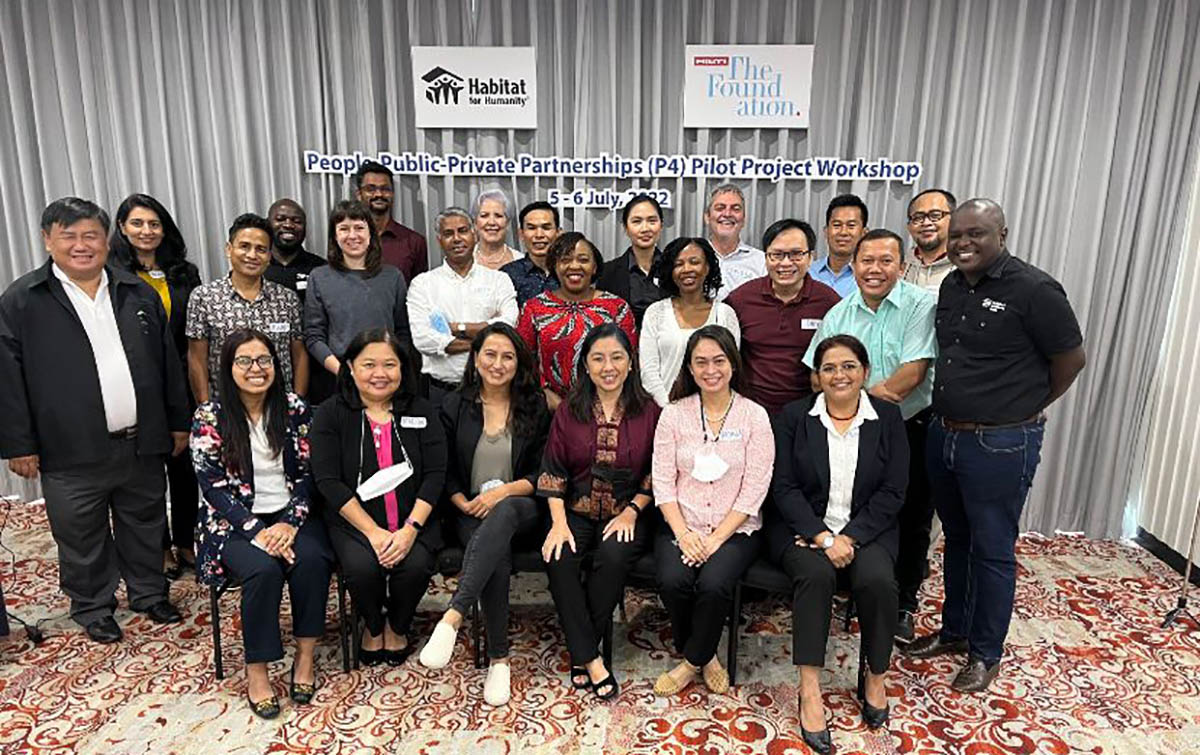 |
||||||||||||||||
Habitat for Humanity International held the Public-Private-People Partnership (P4) workshop from 5th-7th July 2022 at Bangkok, Thailand. Mr. Justin Jebakumar, Director - Government Relations represented Habitat India at the workshop. 10 ongoing P4 projects from the Asia Pacific, Europe and Middle East, and Africa which have received backstopping support from Habitat International were presented and discussed at the workshop. The backstopping support is being provided to enable the selected 10 projects in achieving their project outcomes by strengthening the P4 component and to embed a P4 thinking. All projects were given an opportunity to present the progress, lessons learnt and challenges faced. Plans regarding the completion of the pilot project and embedding as well as adopting P4 approach at the country offices level were also discussed. The Odisha Gruhabikas Program (OGP) is the chosen P4 project from India. The presentation on OGP was well appreciated by the delegates. Suggestions such as scale up strategy and exit strategy were some of the helpful inputs received during the workshop. Habitat India’s Odisha Gruhabikas Program (OGP) began in Puri and Konark districts supporting the State Government’s vision of creating a slum-free Odisha by transforming slums into liveable habitats. A vital aspect of this project is to provide financial assistance in the form of gap-funding to the slum dwellers who are eligible to build their homes under Government of India’s Pradhan Mantri Awas Yojna. The additional financial assistance provided through OGP enables the families to complete their homes in a timely and efficient manner. |
||||||||||||||||
|
|
||||||||||||||||
Building a Better Housing Ecosystem |
||||||||||||||||
|
||||||||||||||||
Project Nirmanshree - A Project Funded by the European Union |
||||||||||||||||
|
||||||||||||||||
 |
||||||||||||||||
|
|
||||||||||||||||
ROAD TO RECOVERY 2.0: COVID-19 RESPONSE |
||||||||||||||||
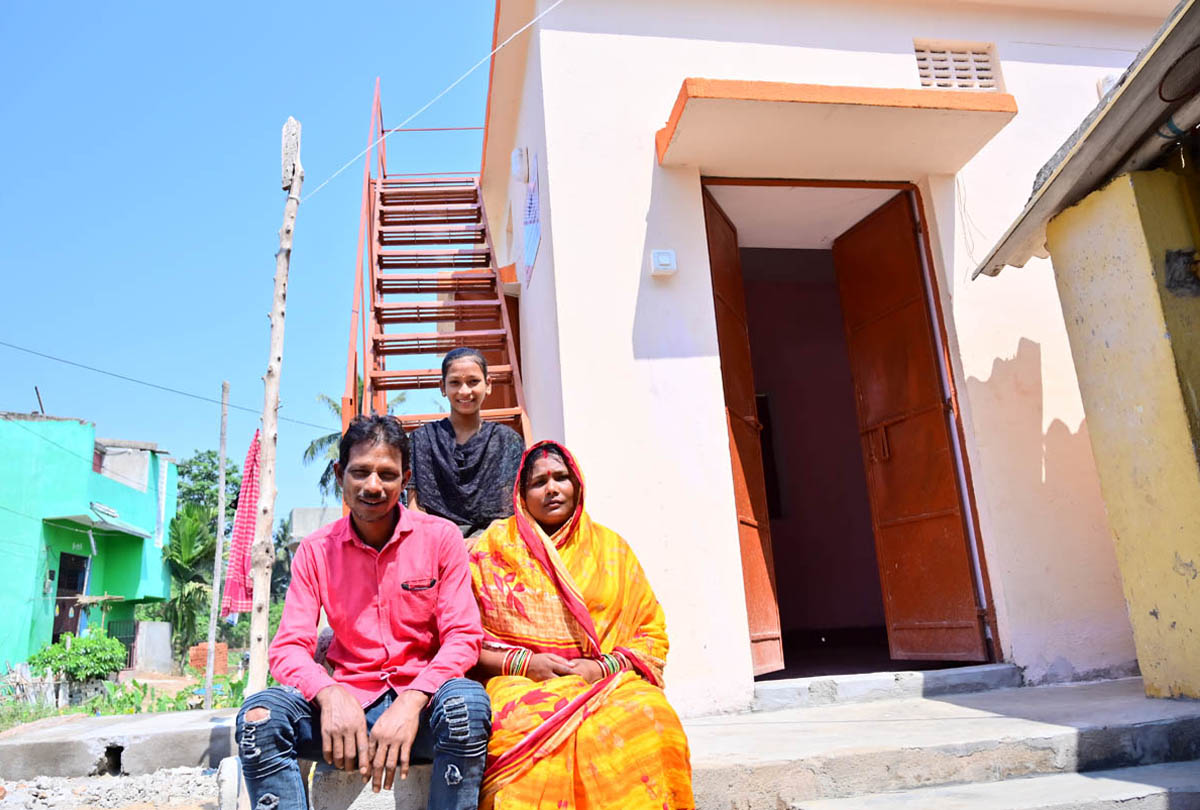 |
||||||||||||||||
With each passing day, we all find ourselves trying to adapt to the measures required to combat the spread of COVID-19. Home is serving as the place we feel the safest. But for many, a safe and affordable home remains elusive. As the economic shocks from this crisis ripple out, the need for affordable, safe and healthy housing is more apparent than ever. We cannot do our work without your help. To date, we have served 3,70,081 people by providing them with Hygiene and Family Essential Kits and by setting up Habitat Care Centres under Road to Recovery 2.0. Under Road to Recovery 1.0, Habitat India served over 1.32 million people from March 2020 to March 2021. Habitat is needed now more than ever. And now more than ever, we need you. Help us build healthy homes. You can contribute as an individual or through your company’s CSR department. Write to Mr. Mohan D’Souza, Director - Resource Development on [email protected] Click here to learn more about or contribute to our COVID-19 response. | ||||||||||||||||
|
|

|
|
|
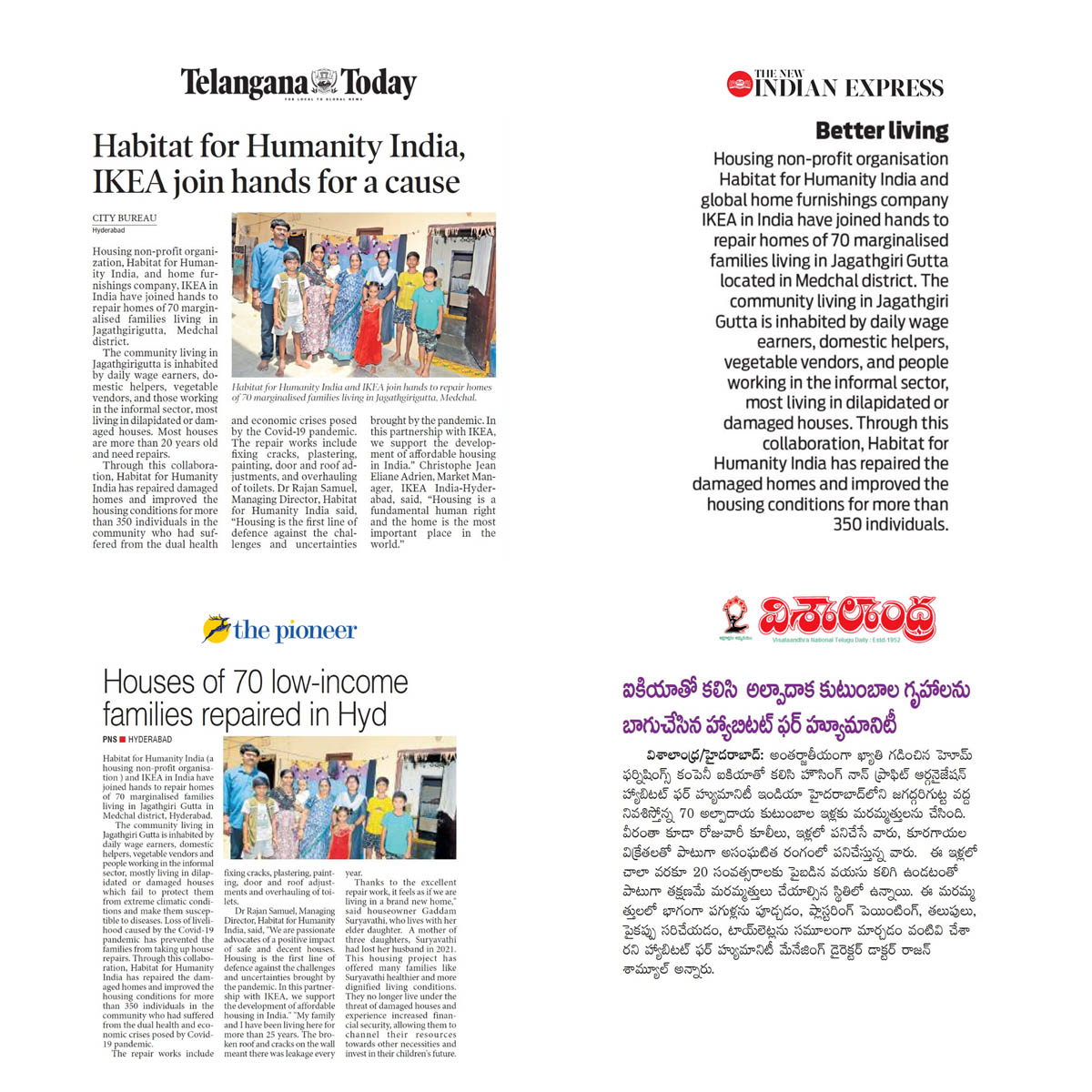 |
|
|
|
|||||
|
|
|||||
Enjoyed reading our newsletter? Subscribe to our mailing list today as we deliver impact straight to your inbox! |
|||||
 |
|
|
|
||||
